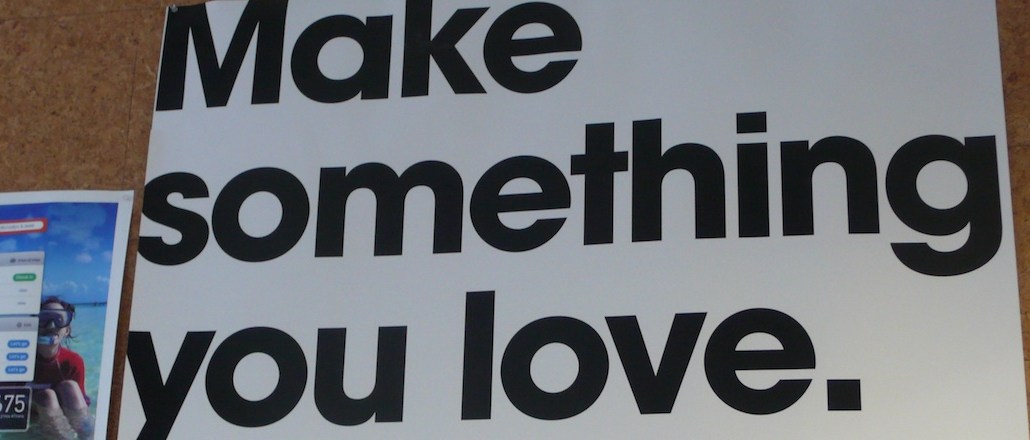Secure your place at the Digiday Publishing Summit in Vail, March 23-25

Google’s “Do the right thing.” Nike’s “Just Do It.” McDonald’s’ “I’m lovin’ it.” Brands’ detailed mission statements might never make it out of their internal company handbooks, but their slogans, tag lines or mantras — call them what you may — take them far and wide.
Agencies, as natural sloganeers, recognize the importance of this standard exercise in brand identity. Like their clients, they too aim for mantras that are short and concise, yet descriptive of their purpose in a way that resonates both with their own employees and clients.
Some agencies have gotten it right in the first attempt, with their corporate mottos standing the test of time. Take McCann, for instance, whose motto “Truth Well Told” dates back to 1912 and is still in use today. For Suzanne Powers, McCann’s global chief strategy officer, it’s because it encompasses a “human truth.”
“At the time it was established, it was in the context of us trying to counter superfluous advertising with our mission,” Powers told Digiday. “But it is relevant till today because it comprises three simple words that are human, travel really well and are universal. It certainly is the bedrock of our process even with new clients — we always start with hunting for the truth of the brand, whether it is the cultural truth, the consumer truth or the company truth.”
The key is conveying a value proposition in one, short sentence — and a quippy one at that.
“The more pithy and concise you are, the more memorable and actionable you can be,” said Andrew Robertson, president and CEO of BBDO Worldwide. “Ours is a crisp, focused articulation of what everyone across our 289 offices in 81 countries lives by — the idea is that if you were to wake any person from BBDO in the world in the middle of the night, this is what you’d get. The form might change, but our focus and obsession doesn’t.”
Coined by its former North America chairman and creative powerhouse Phil Dusenberry in 1996, BBDO’s mantra, “The Work. The Work. The Work.,” has stuck with the agency since then, driving its employees to create and deliver compelling commercial content across the globe.
Huge, too, has adopted a tag line from a poster that hung on its walls in the early days as its mantra. “Make something you love” is just a slogan but functions as a mission statement for the creative shop. Huge might have grown and evolved over the years, but it has chosen to highlight this idea consistently as it reflects the pursuit of quality and meaningfulness over everything else.
“Having one simple thing that you hold above everything else makes it easier to keep everyone on the same page and sets you apart by giving you a clear focus,” said Sam Weston, vp of communications at Huge. “When we say, ‘Make something you love,’ what we’re doing is challenging our teams and our clients to not stop pushing until they’ve come up with something they personally, truly love.”
Agencies, however, acknowledge that mantras are not evergreen. As a company evolves over time, its mission and intent may also change alongside. Leo Burnett is one of the foremost examples and hasn’t hesitated to rework and fine-tune its mission in keeping up with the times.
The agency celebrated its 67th anniversary in 2002 by unveiling a new mission statement: “We create ideas that inspire enduring belief.” This was followed by another pivot in in 2010, when it settled for the phrase “Creativity has the power to transform human behavior.” The most recent iteration, “We use creativity to drive dynamic business change,” was launched earlier this year and aims to address its clients’ needs head on and in a more precise way.
“It came to be in the spirit of continuous improvement,” said Bob Radit, global president of Leo Burnett’s Arc. “‘Dynamic’ leans into the immediacy of impact we must have; never have clients been under more pressure to deliver business results. It’s not next month, not next year, it’s now.”
Ogilvy has also adapted its mission with the times since its inception, from being “most valued by those who most value brands” then to “We Make Brands Matter” today — something it feels is a more natural and modern evolution of its original mission in an era where the relevance of brands is being questioned.
“We continue to abide by the same fundamental principles that David laid out for us in ‘Ogilvy on Advertising,’” said Lauren Crampsie, Ogilvy & Mather’s global CMO. “Our current mission statement still abides by those values, while recognizing the obvious market dynamic shifts that have occurred.”
Well-thought-out agency mission statements have always been handy in winning new businesses, but perhaps the biggest shift is that, today, they are also a way to attract and retain the right fits, in terms of talent.
“Creativity has never been more important and useful than it is today to navigate and capitalize upon what the marketplace presents,” said Arc’s Raidt. “The fact that we use creativity to drive dynamic business change is a clarion call for talent.”
More in Marketing

‘The conversation has shifted’: The CFO moved upstream. Now agencies have to as well
One interesting side effect of marketing coming under greater scrutiny in the boardroom: CFOs are working more closely with agencies than ever before.

Why one brand reimbursed $10,000 to customers who paid its ‘Trump Tariff Surcharge’ last year
Sexual wellness company Dame is one of the first brands to proactively return money tied to President Donald Trump’s now-invalidated tariffs.

WTF is Meta’s Manus tool?
Meta added a new agentic AI tool to its Ads Manager in February. Buyers have been cautiously probing its potential use cases.





